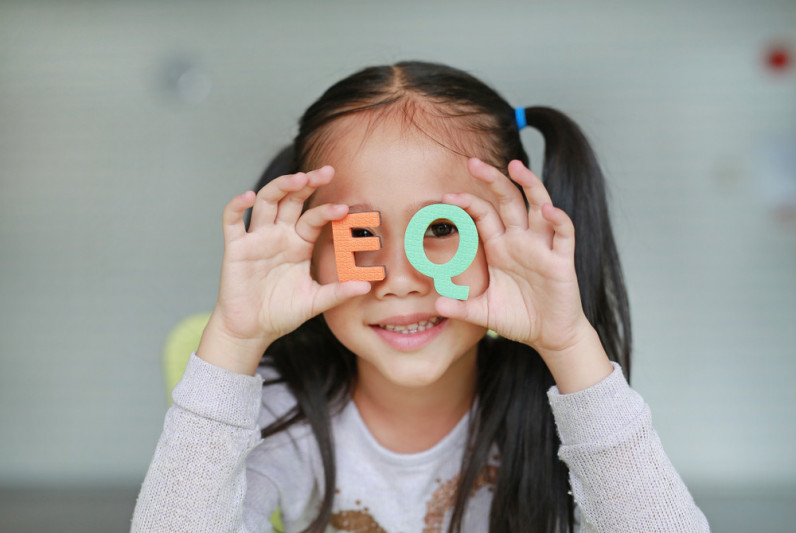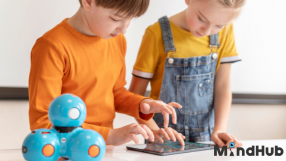
There are countless reasons why programming is useful for children. Starting with problem-solving, cultivating critical and creative thinking, all the way to the career development they can have.
Understanding more about mobile apps, games, computers, and learning the basics of programming helps children fully understand how they work. It teaches them how and why mathematics is necessary, how to think logically and how to transfer this into their daily lives, building valuable qualities while they are still young.
We know it can be hard to imagine how from a very young age they can understand something so complicated. However, the truth is programming for children can be a lot of fun and become an inspiring activity, thanks to summer camps, organized events, programming workshops, training programs and courses, tours and other similar activities.
Of course, learning to program, as with any other discipline, is a challenge. That is why it can sometimes lead to mistakes and disappointments, which can develop in children a sense of perseverance. Not only how to deal with problems, but also how to deal with them when they can't solve them.
This is also the first step toward emotional intelligence.
59% of employers do not hire workers with a low level of emotional intelligence, even if the IQ rate is high.
(Source: Stillwater Area Human Resource Association)
Children’s skills to be constant and persistent in their activities are developed thanks to courses such as programming. Thanks to the logic that programming languages have, they understand much more about the importance of finding solutions to problems. First in front of the monitor, and then outside.
The knowledge of block programming and game creation, on the other hand, helps for the development of their imagination.
We all know that children have a much greater imagination than us. Still, it is the ability to create their characters or how to make two robots communicate with each other, that interest their consciousness beyond recognition. Some of our activities include presenting the ability for them to control the behavior of robots or game characters.
All this is happening under the keen eye of algorithms, and while they are excited to discover new worlds, they are developing the ability to follow logic, precision and consistency.
But how does this help emotional intelligence?
Emotional intelligence affects children's attention, memory, and ability to learn, build relationships with others, and to develop their mental health.
Children with higher emotional intelligence are better at paying attention to everything around them; they are much more involved in school, have good relationships with the people around them, and are more empathetic.
Another essential part of the process of building emotional intelligence is the ability to control these emotions. When younger, children are more likely to change their moods too often depending on whether they get what they want or not. Understanding codes, algorithms and programming languages helps them to learn better to control their emotions and build a sense of perseverance.
Facing the challenges, the number of solutions that need to they need to find, and the programming process itself helps children to face the difficulties and the exciting innovations that unfold before them.
All of this not only fuels their interest in more and more knowledge but teaches them control and responsibility. They understand that if they fail in a task, it is not necessarily a problem, but on the contrary - they have to try another way and fight for their success.
And one of the main reasons why programming helps emotional intelligence is that debugging code is indeed an enjoyable part of the process! Through it, they learn determination and work on solving the problem until they reach the desired result.
Development of qualities
We can talk about emotional intelligence only when we consider the development of the mind, along with sensations. As children develop their analytical and abstract thinking, they also change their perceptions of the world and the feelings of others.
At the same time, they evolve their creativity, self-confidence and confidence in the skills they acquire, analytical, communicative and understanding - of others around them, of programming and how the world of science works in general.
All of this is just part of the process that children go through, building their skills, qualities and emotions. Emotional intelligence is something that they need to develop from an early age, when children understand why something is wrong or right, why actions or words can hurt others or make them happy, how to deal with frustration and how to be calm in the face of challenges.
The mentors at MindHub have all this in mind and work hard with the children so that they can not only learn how to program but also unleash the potential of their emotional intelligence. If you want to enroll your child with us, but you are not sure that it will be suitable for him, you can also look at our offers for a free demo lesson


